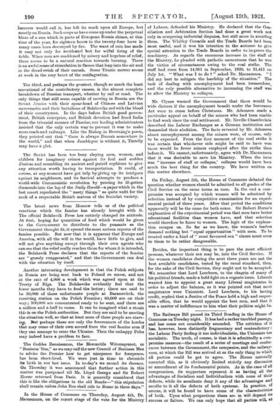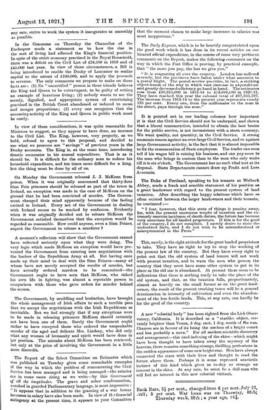The Railways Bill passed its Third Reading in the House
of Commons on Tuesday night. It has had a rather troubled passage, and has come out considerably amended. The criticism of it has, however, been distinctly fragmentary and contradictory : the Labour Party finding it too individualistic, the 'Unionists too socialistic. The truth, of course, is that it is admittedly a com- promise measure—the result of a series of meetings and confer- ences between the Government, the companies, and the railway- men, at which the Bill was arrived at as the only thing to which all parties could be got to agree. The House naturally resented this, as it obviously limited strictly any discussion or amendment of its fundamental points. As in the ease of all compromises, its supporters represent it as having all the advantages of Socialism and Individualism with none of their defects, while its assailants deny it any of the advantages and ascribe to it all the defects of both systems.. In practice, of course, it will be found to have some of the characteristics of both. Upon what proportions these aro in will depend its success or failure. We can only hope that all parties will. at
any rate, strive to work the system it inaugurates as smoothly as possible.



































 Previous page
Previous page